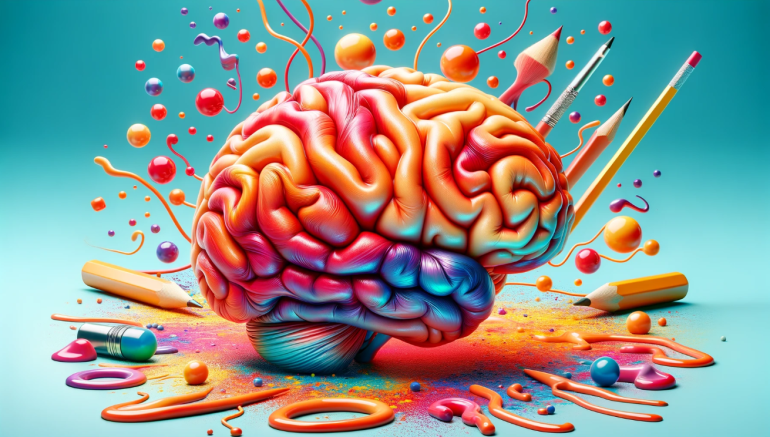- Study led by Anil Doshi and Oliver Hauser examines AI’s influence on creativity.
- AI aids less creative individuals in writing more original stories.
- High creativity individuals see minimal benefit or slight decline with AI assistance.
- Evaluations show AI prompts lead to more homogeneous storytelling.
- Research underscores complex relationship between AI tools and creativity.
Main AI News:
In a groundbreaking study led by Anil Doshi and Oliver Hauser, researchers from University College London and the University of Exeter, the impact of artificial intelligence (AI) on creativity has been meticulously examined. Published in the prestigious journal Science Advances, their research scrutinizes whether AI can serve as a catalyst for creativity, specifically in the realm of crafting original short stories. What emerges is a nuanced portrait: while AI interventions appear to amplify the creative output of individuals deemed less naturally inventive, they concurrently stifle collective creativity among groups.
The experimental setup involved participants tasked with composing concise narratives, roughly eight sentences in length, suitable for a general audience. One cohort engaged in unrestricted story creation, while others were provided varying degrees of AI-generated story prompts—ranging from a single idea to as many as five potential story starters. Subsequently, these stories underwent rigorous evaluation on metrics such as novelty, potential for publication, and emotional resonance. Assessments were conducted both by the writers themselves and by a neutral panel unaware of the AI interventions.
Results from the study illustrate a distinct bifurcation: participants with lower baseline creativity scores demonstrated marked improvement in the quality and originality of their stories when assisted by AI-generated prompts. Conversely, individuals already identified as highly creative experienced minimal benefits, and in some cases, even marginal decreases in story ratings when incorporating AI suggestions. This dichotomy underscores the intricate interplay between AI tools and innate creativity, suggesting that while AI can act as a potent enhancer for some, it may inadvertently impede the spontaneous and original creative flow of others.
Beyond individual evaluations, the researchers utilized sophisticated linguistic analyses, leveraging OpenAI’s embeddings API, to assess the textual similarity and diversity within each experimental group. Findings indicate that exposure to AI-generated prompts correlated with a greater degree of narrative homogeneity within respective categories—stories crafted with AI assistance tended to exhibit more similarities in style and structure, potentially curtailing the diverse range of creative expressions.
Hauser and Doshi emphasize the preliminary nature of their findings, acknowledging the burgeoning field of AI in creative processes and advocating for cautious implementation. They stress the importance of ongoing research in real-world contexts to better understand how generative AI influences creative endeavors across various domains, from literature to visual arts. Their study serves as a pivotal starting point, prompting critical reflections on how to harness AI’s potential while preserving the intrinsic diversity and originality essential to human creativity.
Conclusion:
The study by Anil Doshi and Oliver Hauser reveals a nuanced dynamic between AI and creativity, highlighting its potential to enhance output for less naturally creative individuals while posing challenges to overall creativity in groups. This suggests that in creative markets, while AI can provide valuable assistance in improving content quality for some, its indiscriminate use may inadvertently limit the diversity and originality that are crucial for creative innovation. Businesses should approach AI integration in creative processes with careful consideration, ensuring it complements rather than substitutes human creativity.

